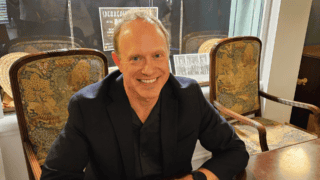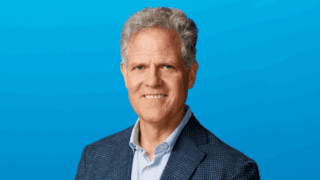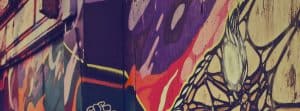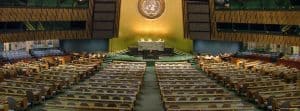The Lavin Agency Speakers Bureau
A speakers bureau that represents the best original thinkers,
writers, and doers for speaking engagements.
A speakers bureau that represents the best original thinkers,
writers, and doers for speaking engagements.
Beauty is survival, not distraction—a way of fighting, a reason to fight.
Molly Crabapple is an artist, activist, and award-winning reporter battling injustice with both words and images. Equal parts haunting and gorgeous, her artwork has been used to illuminate some of the most pressing, heart-wrenching issues of our time: She illustrated essential workers who could not stay home during the pandemic; teamed up with congresswoman Alexandria Ocasio-Cortez on an Emmy-nominated short on the Green New Deal; and worked alongside Jay-Z on an animated film condemning the failed war on drugs. In her electrifying talks, Crabapple shows how we can shift the narratives found in traditional media to find our common humanity.
In a few short years, Molly Crabapple has proved to be one of the most determined and effective political artists working in these sorry times. I wish there were a hundred or even two or three like her.Joe Sacco
There is no easy way to sum up Molly Crabapple’s career. Her projects range from reporting on the inhumane conditions of immigrant labour camps in Abhu Dhabi, to capturing New York City before and after the onset of the pandemic, to collaborating with Marey Carey on her rhapsodic “Save the Day” music video—paying homage to prominent Black figures such as Breonna Taylor and Frederick Douglass. Crabapple has travelled the world; to Syria, Lebanon, Turkey, The United Arab Emirates, Spain, and Greece, documenting life amidst war and violence with her pen and brush. She was shortlisted for a Frontline Print Journalism Award for her internationally acclaimed reporting on Guantanamo Bay—and her work on the aftermath of Hurricane Maria in Puerto Rico was equally gripping. Fierce and courageous, Crabapple makes visible the things we might not want to see: riot-torn cities, the torment and misery of war, and human suffering on a grand scale. But she also helps us envision a new world: in the sequel to the Emmy-nominated short “A Message from the Future with Alexandra Ocasio-Cortez,” Crabapple illustrates a future where 2020 is a historic turning point; “where the lessons of the Covid-19 pandemic and global uprisings against racism drive us to build back a better society in which no one is sacrificed and everyone is essential.”
Recently, Crabapple illustrated the Equal Justice Initiative’s groundbreaking Reconstruction in America—a report which examines how the lawless years following the Civil War helped cement the nation’s future of racial hierarchy and white supremacy. She was also commissioned by The Marshall Project, an journalistic organization dedicated to criminal justice, to illustrate a “The Zo”: an award-winning documentary series detailing the power struggles between incarcerated people and their captors.
Crabapple’s illustrated memoir, Drawing Blood, received rave reviews in The New York Times, The Economist, Die Welt, and many other publications. Her book Brothers of the Gun, long-listed for the National Book Award, saw her collaborate with a Syrian journalist Marwan Hisham to write (and illustrate) his experience of life under ISIS. The book was named one of the 100 Notable Books of 2018 by The New York Times. Her other published books include Discordia (with Laurie Penny), on the Greek economic crisis, and the art books Devil in the Details and Week in Hell. A contributing editor at VICE, Crabapple’s reportage has been published in the New York Times, New York Review of Books, The Paris Review, Vanity Fair, The Guardian, Rolling Stone, The New Yorker and more.
Crabapple has been called “equal parts Hieronymus Bosch, William S. Burroughs and Cirque du Soleil,” by The Guardian, and “THE artist of our time” by comedian Margaret Cho. She spent four years as the staff artist of The Box, one of the world’s most lavish (and notorious) nightclubs. Crabapple has taken her sketchbook from burlesque halls to refugee camps, always with a skeptical eye for power. She is also the illustrator of Matt Taibbi’s New York Times bestseller The Divide and has collaborated with Spike Jonze, Esperanza Spalding, and Patton Oswalt. She regularly speaks to audiences around the world, at institutions such as The Museum of Modern Art, The London School of Economics, and Harvard and Columbia Universities. Her works are held in the permanent collections of the Museum of Modern Art and The New York Historical Society.

Harvard Economist MacArthur Genius Studying Economic Opportunity Director of Opportunity Insights

Historian New York Times Bestselling Author of Humankind: A Hopeful History, Utopia for Realists, and Moral Ambition

Author of Morningside and THE AMERICANO

One of America's Foremost Experts on the Declaration of Independence Award-Winning Author, Disunion Among Ourselves

Harvard Economist MacArthur Genius Studying Economic Opportunity Director of Opportunity Insights

Historian New York Times Bestselling Author of Humankind: A Hopeful History, Utopia for Realists, and Moral Ambition

#1 New York Times Bestselling Author of Grit and Situated | Pioneering Researcher on Grit, Perseverance, and the Science of Success

2024 Nobel Prize Winner | 3rd Most Cited Economist in the World | Bestselling Co-Author of Why Nations Fail and Power and Progress

Harvard Business School Behavioral Science Professor | "40 Under 40 MBA Professor" | Author of TALK: The Science of Conversation and the Art of Being Ourselves

#1 New York Times Bestselling Co-Author of Abundance | Host of thePlain English Podcast | Founder of the Substack Derek Thompson

#1 New York Times Bestselling Author of How the Word Is Passed and Above Ground | The Atlantic Staff Writer

How can art and its associated contexts—including cities, irreverence, beauty, and pluralism—stand against authoritarianism? From Trump to Putin to Erdoğan to Duterte, we are experiencing a global love affair with fascism (and its ringleaders), in which politics are less concerned with facts than emotion and imagery. What role can art play in climates of political repression and populist demagoguery? In this rallying talk, prolific painter and journalist Molly Crabapple asks us to consider art and artists not as apolitical entertainment, but as heralds of truth. Drawing on her experience as an award-winning reporter and illustrator of images that often stand as maps of historical moments, Crabapple’s latest keynote speaks to, and is customizable for, a wide variety of audiences. Incorporating stories of her work with the Occupy movement and reporting on Guantanamo Bay, this talk is for anyone with a hunger to understand our future better; if and how art can affect politics—and the world we’ll share for the next four years and beyond.

For too long artists have played the role of observer, disconnected from the political activity of the people around them. Is that all an artist can contribute to society? In this personal talk, Molly Crabapple traces her experiences with the Occupy movement and recent Greek protests, describing the twists and turns that informed her political engagement as a visual artist. By combining politics with art, she shows that the place for art isn’t standing to one side of political movements, but marching in the thick of things. She speaks on the direct ways that making art contributes to political movements—by adding the visceral and immediate power of images to the words and ideas that drive political engagement. What’s more, she will help you recognize the opportunity to do more, and make a difference.

We live in an era of flux. The old model of a creator or creative type—a person who does one thing well, and depends on institutions for support—is falling by the wayside. The creator of the future is a super-connected trans-disciplinary mutant: engaged and intellectually rebellious. Molly Crabapple has created everything from Occupy Wall Street posters and arts journalism of collapsing countries to murals on the walls of the world’s most exclusive nightclubs. On stage, she delivers an energizing, take-no-prisoners talk on how creators—how everyone—can create a life of their own design, without asking permission.